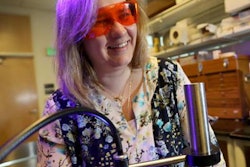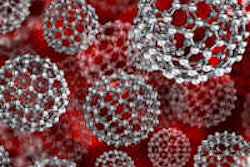The National Institutes of Health (NIH) is awarding $2.8 million this year for six research projects to pursue a longer-lasting dental composite.
The six projects, each funded for five years, will allow a select group of scientists in the U.S. to work independently toward the common goal of doubling the service life of dental composites.
Dentists currently place more than 122 million dental composites per year in the U.S., according to the NIH. But the composites fail on average in less than eight years and must be replaced, often with another dental composite.
The majority of today's dental composites still employ the original methacrylate monomer bisphenol A glycidyl methacrylate (bis-GMA). A concern is that this monomer, when polymerized, may work together with certain microorganisms in the mouth to cause a recurrence of decay in the repaired tooth. An estimated 600 to 800 distinct microorganisms that inhabit the mouth have learned to colonize for a competitive advantage over its microbial rivals.
Little is known about how oral bacteria interact with dental composites, and it is critical to determine whether and to what extent these bacteria might contribute to the aging, mechanical fatigue, and ultimately the failure of composite fillings, noted James Drummond, DDS, PhD, director of the National Institute of Dental and Craniofacial Research's Dental and Biomaterials Program.
To explore the issue further, each of the research projects will team material scientists, polymer chemists, and microbiologists. Another possible area of study will be to characterize whether the natural enzymes in saliva also play a role in degrading restorative dental materials.
Here are the six research projects being funded by the NIH:
- "Cu-catalyzed azide-alkyne reactions for novel dental composite materials." Principal investigators: Christopher Bowman, PhD; Christopher Kloxin, PhD; and Jeffrey Stansbury, PhD, University of Colorado, Boulder
- "Dental composite materials based on photoinitiated thiol-vinyl sulfone reactions." Principal investigator: Christopher Bowman, PhD, University of Colorado
- "Oxarane-acrylate system to double the clinical service life of restorative resins." Principal investigator: H. Ralph Rawls, PhD, University of Texas Health Science Center, San Antonio
- "Novel dental resin composites with improved service life." Principal investigator: Jirun Sun, PhD, American Dental Association
- "Tertiary methacrylamides and thiourethane additives as novel dental composites." Principal investigators: Carmen Pfeifer, DDS, PhD, and Jack Ferracane, PhD, Oregon Health and Science University, Portland
- "The design, development and evaluation of a nano/micro filled novel smart dental composite." Principal investigators: Brian Clarkson, PhD, and Timothy Scott, PhD, University of Michigan School of Dentistry, Ann Arbor



















